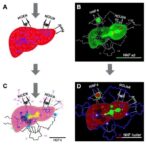
Childhood cancer survivors face a heightened risk of severe COVID-19 illness decades after their initial diagnosis, according to groundbreaking research conducted by the Karolinska Institutet and published in the prestigious journal The Lancet Regional Health – Europe. This comprehensive study sheds new light on the long-term vulnerabilities of individuals who have triumphed over cancer in their youth, highlighting the enduring impact of early-life cancer and its treatment on immune resilience and health outcomes during pandemics.
Medical advancements over recent decades have dramatically improved the survival rates of pediatric cancer patients. Yet, the legacy of cancer and its treatments often lingers, manifesting in late effects that compromise the overall health of survivors well into adulthood. The recent COVID-19 pandemic provided a unique lens through which researchers could explore how these late effects influence susceptibility to infectious diseases, particularly those caused by novel viruses such as SARS-CoV-2.
Leveraging extensive registry data from Sweden and Denmark, countries known for their meticulous health data collection, the research team analyzed health outcomes for over 13,000 individuals diagnosed with cancer before the age of twenty. All participants were adults at the onset of the COVID-19 pandemic. To elucidate the specific impact of childhood cancer history on COVID-19 infection and severity, these survivors were compared with two control groups: their siblings and unrelated individuals matched for age and sex within the general population.
.adsslot_jHaWtMrq0i{ width:728px !important; height:90px !important; }
@media (max-width:1199px) { .adsslot_jHaWtMrq0i{ width:468px !important; height:60px !important; } }
@media (max-width:767px) { .adsslot_jHaWtMrq0i{ width:320px !important; height:50px !important; } }
ADVERTISEMENT
Intriguingly, the analysis revealed that childhood cancer survivors exhibited a paradoxical pattern of COVID-19 vulnerability. Despite a statistically significant reduction in the incidence of contracting COVID-19, this group faced a 58% increased risk of developing severe disease if infected. Severe COVID-19 cases were classified based on clinical criteria including hospitalization, admission to intensive care units (ICUs), or fatal outcomes attributable to the infection. This discrepancy suggests that while survivors might have been more cautious or shielded during the pandemic, their physiological reserves to combat the virus upon infection were markedly compromised.
Javier Louro, the study’s lead author and a postdoctoral fellow at the Institute of Environmental Medicine of Karolinska Institutet, emphasized the clinical gravity of these findings. He stated, “Even if infection rates appear lower among childhood cancer survivors, the consequences upon infection are disproportionately severe. This underlines the need for targeted public health strategies for this vulnerable population.” Louro’s insights point toward a nuanced interplay between behavioral adaptations to infection risk and intrinsic biological susceptibilities rooted in earlier cancer and its treatment modalities.
An important aspect of the study was the temporal analysis of COVID-19 risk relative to viral variant waves. During periods marked by aggressive transmission of highly contagious SARS-CoV-2 variants—such as Alpha and Omicron—the elevated risk of severe disease among childhood cancer survivors became more pronounced. This correlation underscores how the biological vulnerabilities of survivors interact dynamically with epidemiological shifts, necessitating adaptable healthcare responses based on the evolving pandemic landscape.
The study also drew comparative insights between Sweden and Denmark, two neighboring countries with notably different pandemic management approaches. Sweden’s strategy relied predominantly on public health recommendations with limited mandatory restrictions, whereas Denmark implemented early and stringent control measures. The data revealed that Sweden experienced a greater relative increase in severe COVID-19 risk among childhood cancer survivors compared to Denmark, reinforcing the protective effect of aggressive mitigation policies for high-risk groups.
From a mechanistic perspective, long-term health sequelae in childhood cancer survivors often include compromised cardiopulmonary function, immune dysregulation, and organ system fragility, all of which can exacerbate the pathophysiology of COVID-19. Treatments such as chemotherapy, radiation, and hematopoietic stem cell transplantation, while lifesaving, can induce chronic inflammation, fibrosis, and immunosenescence that collectively lower the threshold for severe infectious complications. The study’s findings underscore the critical importance of integrating survivorship care into infectious disease risk assessments.
In light of these findings, the researchers advocate for recognizing childhood cancer survivors as a priority group in pandemic preparedness frameworks. This includes proactive strategies such as prioritization for vaccination boosters, early antiviral interventions, and enhanced protective measures during periods of heightened viral circulation. Tailored public health messaging and clinical vigilance could potentially mitigate the disproportionate morbidity and mortality risks identified in this population.
In addition to immediate pandemic implications, the study raises broader questions about long-term health surveillance and resource allocation for childhood cancer survivors. It signals a pressing need for interdisciplinary research to dissect the molecular and immunological underpinnings of their heightened vulnerability, potentially informing precision medicine approaches that optimize both cancer survivorship and infectious disease resilience.
This pioneering research was a collaborative effort between the Karolinska Institutet and the Danish Cancer Institute, supported by funding from the Swedish Childhood Cancer Fund and the Swedish Research Council among other research bodies. Detailed exploration of data sources, methodology, and potential conflicts of interest can be found in the original publication.
Ultimately, this study crystallizes the evolving understanding that surviving childhood cancer does not equate to restored health equilibrium. Instead, it emphasizes the complexity of survivorship as a lifelong journey, with unique vulnerabilities that demand continued attention and tailored healthcare practices, especially in the face of emerging global health threats like COVID-19.
Subject of Research: People
Article Title: COVID-19 infection and severity among childhood cancer survivors in Denmark and Sweden: a register-based cohort study
News Publication Date: 4-Jul-2025
Web References: https://doi.org/10.1016/j.lanepe.2025.101363
References: Louro J., Kampitsi C-E., Mogensen H., Erdmann F., Modig K., Nilsson A., Heyman M., Hasle H., Krøyer A., Kenborg L., Hjalgrim H., Feychting M., Tettamanti G. (2025). COVID-19 infection and severity among childhood cancer survivors in Denmark and Sweden: a register-based cohort study. The Lancet Regional Health – Europe.
Image Credits: Stefan Zimmerman
Keywords: COVID 19, Children, Cancer
Tags: cancer survivorship and infectious diseaseschildhood cancer survivorsCOVID-19 risk in adultsCOVID-19 susceptibility in survivorshealth data analysis in Swedenimmune resilience in cancer survivorsKarolinska Institutet studylate effects of childhood cancerlong-term health effects of cancer treatmentpandemic health outcomespediatric cancer researchSARS-CoV-2 vulnerability



